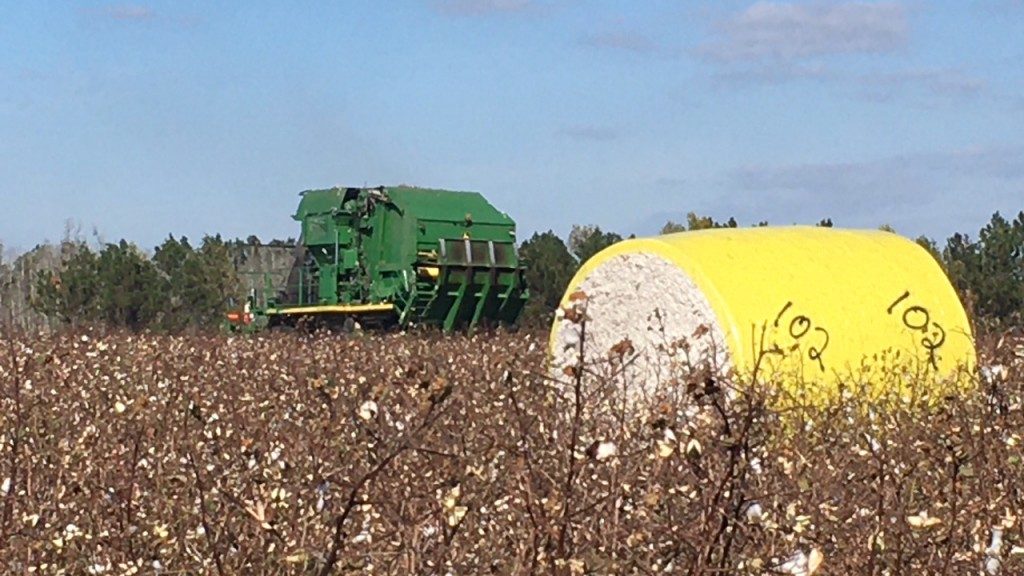In the past week or so I have received numerous calls about bermudagrass that was brown/dying in hay fields and pastures. Many cases have been caused by damage from the Bermudagrass Stem Maggot (BSM). However, I have seen just as many cases that were caused by leaf spot and leaf rust.
A closer look at the leaf blades will reveal the lesions created by these fungal diseases.
Weather conditions this year have been especially conducive to disease development, but the problem is also tied to potash deficiency. Soil tests may show adequate levels of potassium, but they can be misleading. Submit a plant tissue sample instead to determine if potassium levels are low. We can send soil and tissue samples to the UGA labs from our office for a small fee. Nutrients are removed in a 4:1:3 of N-P-K as hay. This means that you must add at least 75% as much potash as you do nitrogen each season. Splitting fertilizer applications is more effective in the sandy soils of our region.
The problem has been worst on Alicia. Other bermudagrass varieties typically have enough resistance bred into them to avoid severe epidemics. If the problem is severe, cutting and removing the hay (if possible), and fertilizing low fertility fields to promote healthy regrowth is an option. This may allow for better grazing conditions, but producing another hay crop will be difficult. Grazing the fields is an option also. The hay/forage will certainly be lower in quality, and you may see some refusal from animals. However, it may be the best utilization of the resource since we are so late in the year.
Burning is recommended every 1-3 years. Make sure to burn the field in February/March to reduce the amount of disease present in the field next year. The disease survives from year to year in the dead plant material (thatch layer) so destroying it by burning is crucial.
Call me at (229) 873-2359 if you have any questions or need me to look at the situation in your field. You can read more detailed information about this topic by clicking here. I also encourage you to explore other great topics at the Georgia Forages website.


